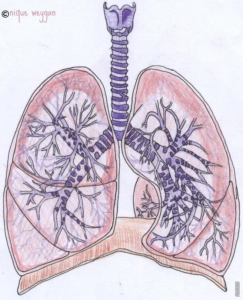The Unseen Culprit
Appendicitis, a condition characterized by the inflammation of the appendix, is a silent intruder that can strike unexpectedly. Despite its small size and seemingly insignificant function, the appendix can wreak havoc when infected. In this article, we will explore the various treatment options available for this mysterious ailment.
1. Surgical Intervention: The Ultimate Solution
When it comes to treating appendicitis, surgery is often the go-to option. The procedure, known as an appendectomy, involves the removal of the inflamed appendix. This approach ensures the complete elimination of the problem, reducing the risk of complications and recurrence.
2. Laparoscopic vs. Open Appendectomy: The Battle of Techniques
Within the realm of surgical intervention, two techniques prevail: laparoscopic and open appendectomy. Laparoscopic surgery, also known as minimally invasive surgery, involves making small incisions through which a camera and surgical tools are inserted. On the other hand, open appendectomy requires a larger incision to access the appendix. Both techniques have their advantages and drawbacks, and the choice depends on the patient’s condition and surgeon’s expertise.
3. Antibiotics: The Non-Invasive Approach
In some cases, where the appendix hasn’t ruptured and the infection is mild, antibiotics may be prescribed as the primary mode of treatment. This non-invasive approach aims to reduce the inflammation and control the infection without the need for surgical intervention. However, close monitoring is crucial to ensure the effectiveness of the antibiotics and to promptly shift to surgical treatment if necessary.
4. Natural Remedies: Complementary Care
Although not a standalone treatment, natural remedies can play a complementary role in managing appendicitis. Herbal remedies, such as turmeric and ginger, are known for their anti-inflammatory properties and can aid in reducing the symptoms. However, it is essential to consult with a healthcare professional before relying solely on natural remedies.
Post
Post
5. Prevention: The Best Medicine
As the saying goes, prevention is better than cure. While there is no foolproof way to prevent appendicitis, maintaining a healthy lifestyle and regular exercise can contribute to overall well-being. Additionally, being aware of the symptoms, such as abdominal pain and loss of appetite, and seeking immediate medical attention can prevent the condition from worsening.
Conclusion
Appendicitis may be an unseen culprit, but with the right treatment, its impact can be mitigated. Whether it’s through surgical intervention, antibiotics, or complementary care, the goal remains the same: to eliminate the inflammation and restore health. By staying informed and taking appropriate measures, we can outsmart the silent intruder and safeguard our well-being.



